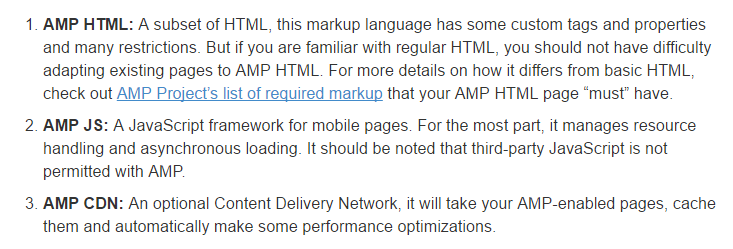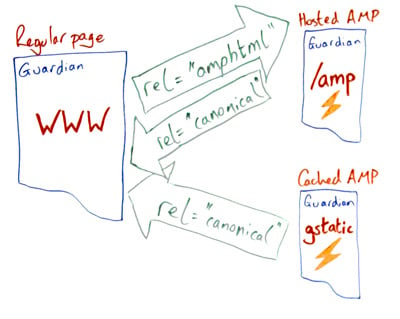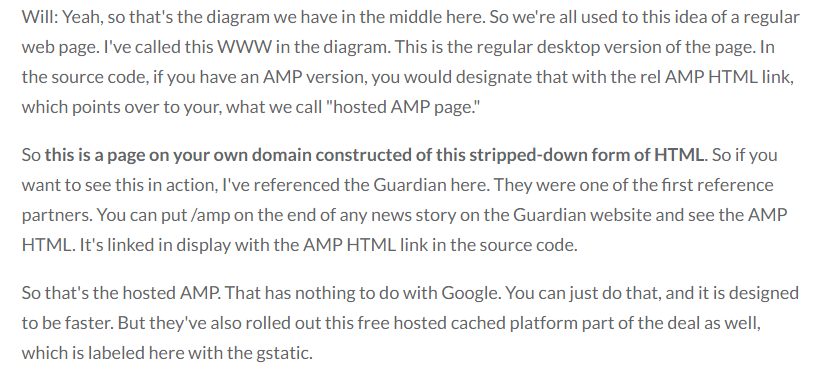Accelerated Mobile Pages (AMP): The Definitive Guide for Marketers

By Neil Patel
When it comes to your website, speed matters. The longer your page takes to load, the more traffic you’ll lose.
A few years ago, Google launched its mobile-friendliness update and made page load speed one of its mobile search engine ranking factors. Today, load speed affects your position in the SERPs; so uses may not be able to see your page at all if it loads slowly.
What’s the solution? Accelerated Mobile Pages, or AMP. Well, maybe — there’s actually been pushback on AMP pages in recent years.
What is AMP? Is it still relevant? If you want to dig deeper into AMP and learn how to use it to grow your online marketing strategy, you are in the right place.
What Are Accelerated Mobile Pages (AMP)?
The AMP plugin was born out of a collaboration between tech giants like Google and Twitter.
In simple terms, Accelerated Mobile Pages is an open-source project designed to optimize faster mobile pages. It’s like taking a page that’s already mobile-friendly and making it load quicker, by stripping it down to basics.
If AMP isn’t already part of your marketing strategy, you should consider it.
Webmasters, marketers, and SEOs have analyzed how AMP can affect mobile web pages. They found AMP can have a huge impact on mobile search engine rankings, though Google maintains this isn’t directly factual.
In a roundabout way, however, it might be true. According to Google, the AMP plugin increases page load speed, and site speed is a confirmed ranking factor.
Faster mobile pages + readable content = better user experience
In a nutshell, pages that are AMP-optimized load faster and therefore rank better than other mobile web pages.

You can visit the open source initiative platform here.
How Does The AMP Plugin Work?
Paul Shappiro, from Search Engine Land, lays out the three part structure of AMP:

The AMP plugin renders mobile pages faster by cutting back on the HTML coding and rendering only those suitable for mobile users.
This diagram and explanation from Will Critchlow’s Whiteboard Friday make it pretty easy to understand:


AMP renders your pages using optimized HTML code. The pages are expected to load faster because certain HTML code tag manager aspects that would otherwise slow down the page are eliminated.
If JavaScript is included in your mobile pages, the script won’t be rendered for your Accelerated Mobile Pages.
Here are a few more things you should know:
- With AMP, …read more
Source:: Kiss Metrics Blog







